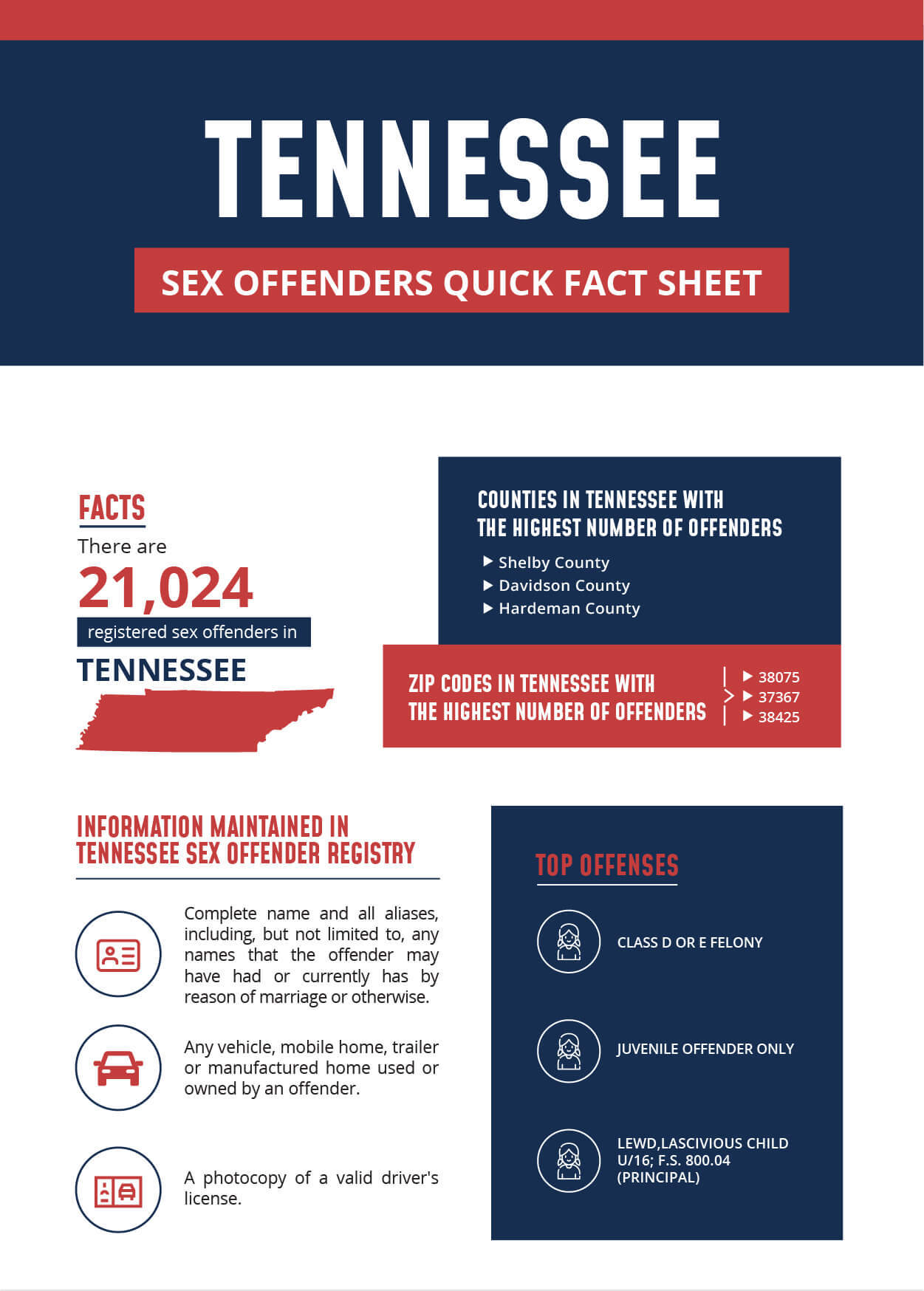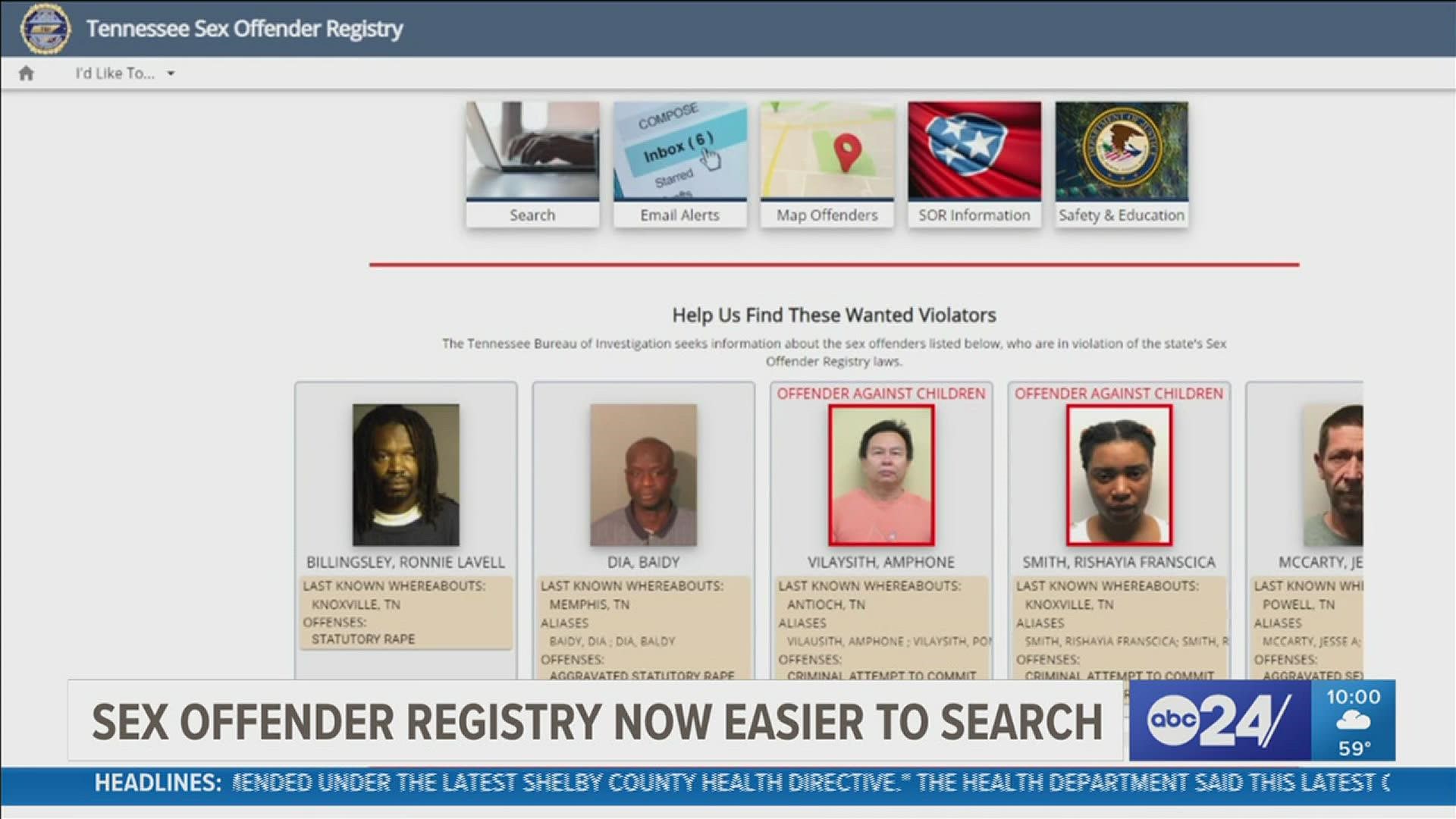Navigating Transparency: Understanding Tennessee’s Sex Offender Registry
Related Articles: Navigating Transparency: Understanding Tennessee’s Sex Offender Registry
Introduction
With great pleasure, we will explore the intriguing topic related to Navigating Transparency: Understanding Tennessee’s Sex Offender Registry. Let’s weave interesting information and offer fresh perspectives to the readers.
Table of Content
Navigating Transparency: Understanding Tennessee’s Sex Offender Registry

The Tennessee Sex Offender Registry, accessible online through a map-based interface, serves as a public resource designed to enhance community safety and inform citizens about individuals convicted of sex offenses. This registry, a crucial element of Tennessee’s efforts to combat sex crimes, provides valuable information to residents, enabling them to make informed decisions about their safety and the safety of their families.
The Foundation of Transparency:
The registry’s foundation lies in the Sex Offender Registration and Notification Act (SORNA), a federal law that mandates states to establish and maintain registries of sex offenders. This legislation aims to ensure public safety by providing access to information about individuals convicted of sex offenses, allowing communities to take necessary precautions.
Navigating the Map:
The Tennessee Sex Offender Registry map presents a visual representation of registered sex offenders within the state. Users can navigate the map by zooming in and out, searching by address, or utilizing various filters. Each marker on the map represents a registered sex offender, and clicking on it reveals detailed information about the individual, including:
- Name: The offender’s full legal name.
- Date of Birth: The offender’s birthdate.
- Offense: The specific sex offense for which the individual was convicted.
- Registration Date: The date the offender registered with the state.
- Address: The offender’s current address, which may be a physical address, a PO box, or a temporary location.
- Photo: A photograph of the offender, if available.
- Risk Level: A designation indicating the offender’s perceived risk of re-offending, often categorized as low, moderate, or high.
Understanding the Data:
It is essential to acknowledge that the information provided on the registry is subject to legal limitations. The registry only includes individuals who have been convicted of certain sex offenses and who are required to register under Tennessee law. Additionally, the registry may not reflect changes in an offender’s status, such as a change of address or a release from custody.
Important Considerations:
While the registry serves a valuable purpose in enhancing public safety, it is crucial to approach it with awareness and understanding. Misusing the information provided can lead to harmful consequences. It is essential to remember that:
- The registry is not intended to be a tool for vigilante justice.
- It is against the law to harass, intimidate, or threaten individuals listed on the registry.
- The registry should not be used to discriminate against or ostracize individuals.
Frequently Asked Questions:
Q: Why is the Tennessee Sex Offender Registry important?
A: The registry provides crucial information to the public, empowering individuals to make informed decisions about their safety and the safety of their families. It serves as a tool for community awareness and helps ensure that individuals convicted of sex offenses are held accountable.
Q: Who is included in the Tennessee Sex Offender Registry?
A: The registry includes individuals convicted of certain sex offenses, such as rape, sexual battery, child molestation, and aggravated sexual assault. The specific offenses included in the registry are outlined in Tennessee law.
Q: How often is the Tennessee Sex Offender Registry updated?
A: The registry is updated regularly, typically on a daily basis. However, it is important to note that information may not be immediately reflected due to legal and administrative processes.
Q: What information is not included in the Tennessee Sex Offender Registry?
A: The registry does not include information about individuals who have not been convicted of sex offenses, individuals who have completed their registration requirements, or individuals who have been granted a pardon or expungement.
Tips for Using the Tennessee Sex Offender Registry:
- Be aware of the limitations of the registry. The information provided is subject to legal restrictions and may not be entirely comprehensive.
- Use the registry responsibly. Avoid using it for purposes that could lead to harassment, intimidation, or discrimination.
- Report any inaccuracies or discrepancies. If you notice any errors in the registry, report them to the appropriate authorities.
- Stay informed. Regularly check the registry for updates and changes.
Conclusion:
The Tennessee Sex Offender Registry serves as a vital tool for community safety and transparency. By providing access to information about individuals convicted of sex offenses, the registry empowers citizens to make informed decisions about their personal safety and the safety of their loved ones. It is crucial to use the registry responsibly and to understand its limitations. By doing so, we can contribute to a safer and more informed community.








Closure
Thus, we hope this article has provided valuable insights into Navigating Transparency: Understanding Tennessee’s Sex Offender Registry. We thank you for taking the time to read this article. See you in our next article!